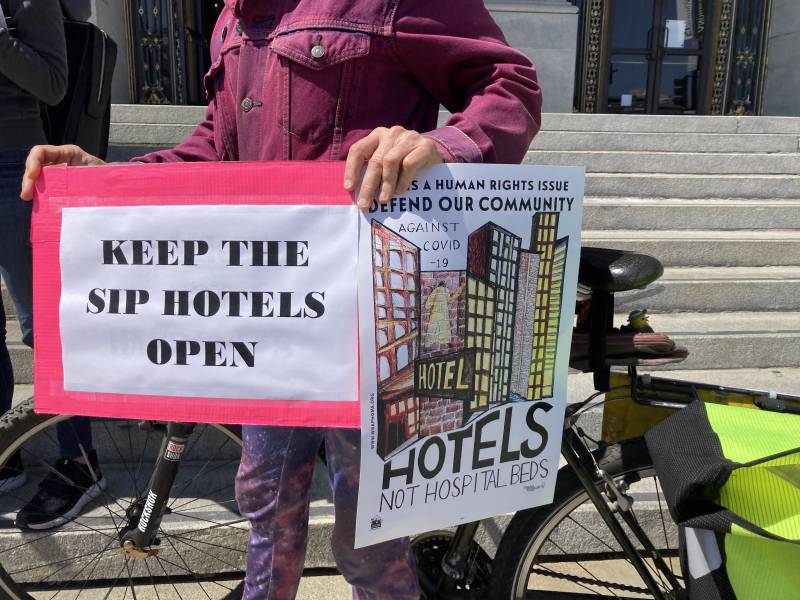Featured in KQED:
San Francisco plans to extend through September 2022 a shelter-in-place program that provides hotel rooms for unhoused people, city officials announced Thursday.
The decision comes a month after advocates for people experiencing homelessness protested in front of City Hall, calling for a continuation of the program that has now served over 3,700 residents since it began in April 2020.
San Francisco's Department of Homelessness and Supportive Housing began phasing out the program — part of Project Roomkey, a statewide homelessness relief initiative — in June, when COVID-19 infection rates in San Francisco were declining. Since then, the city has closed six of 25 hotel sites.
The city had planned to incrementally phase out the remaining locations through next June, saying it lacked the funds to continue operating them beyond then.
The announcement of the three-month extension follows the Federal Emergency Management Agency's authorization of an additional $46 million for the program, with the city putting up an extra $21 million.
In addition to wellness checks and health screenings, the hotel program provides a variety of services, including harm reduction counseling, nursing support, meals, security, laundry and assistance securing public benefits and planning for next steps.
Dominique Griffin, who helped organize last month's protest, participated in a related shelter-in-place program after losing her job early on in the pandemic. She and her two children were able to stay for free for a year at the Oasis Inn near City Hall.
“If it wasn't for that hotel, I'd be out on the streets in a tent as well, with my children,” she said.
Griffin and her family have since moved into a subsidized two-bedroom apartment in the East Bay city of Pittsburg, which was arranged for her by a San Francisco housing case manager.
City officials say they're focusing on providing stable housing to the roughly 1,400 current hotel residents in the program. To meet that goal, they say they will need to move about 35 to 40 people a week into permanent housing over the next year.
Since the program’s inception last year, 729 participants have been rehoused, according to the city’s Department of Homelessness and Supportive Housing, which oversees it.
“It takes significant city and nonprofit staffing to move people from the hotels into housing,” said Emily Cohen, a spokesperson for the department. “It's not a quick process. And so we really need to have the capacity and the workers to do this process. Any delays will just result in a tremendous crisis at the end of the program.”
Cohen said the program's extension buys the city more time to move as many people as possible into stable housing.
“The most stabilizing thing we can do if someone is not yet linked with that right unit for them and has accepted that placement is to keep them in a SIP hotel where they can continue to engage with their housing navigators,” she said.


No comments:
Post a Comment